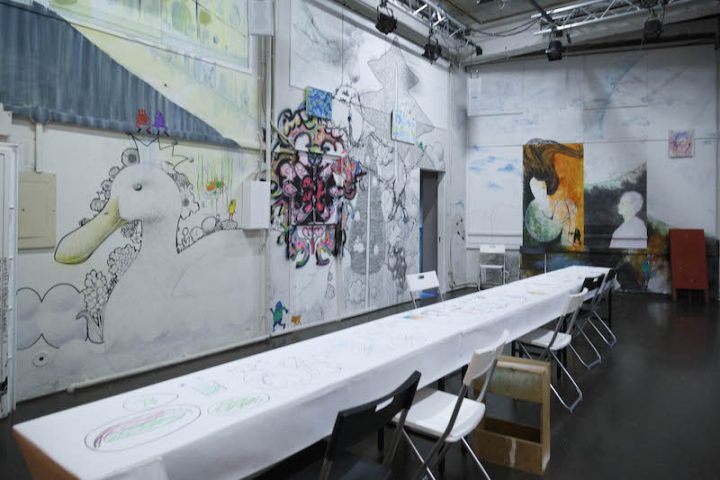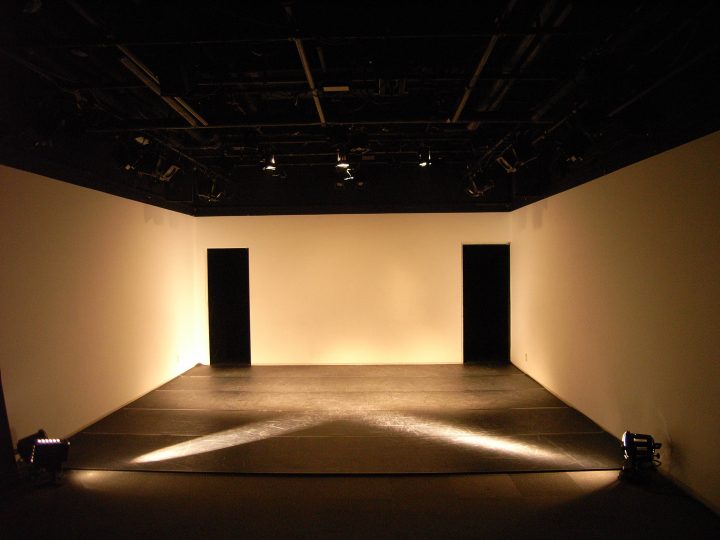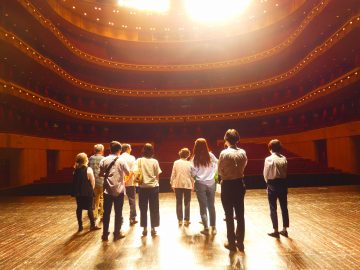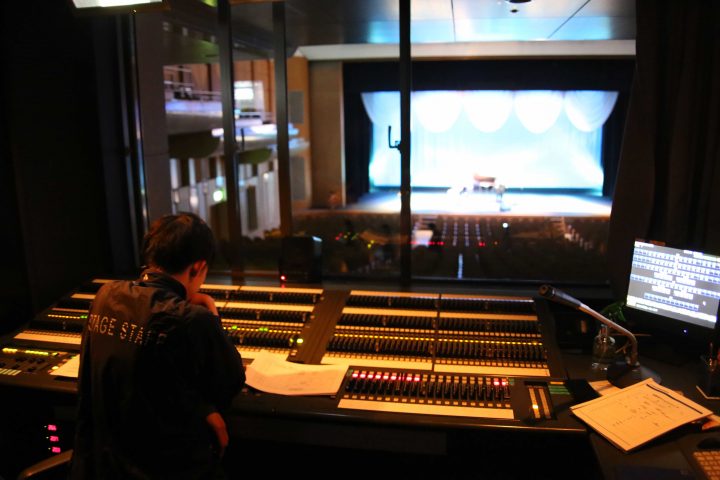"Mag People" No. 1: Ryujin Nishikawa
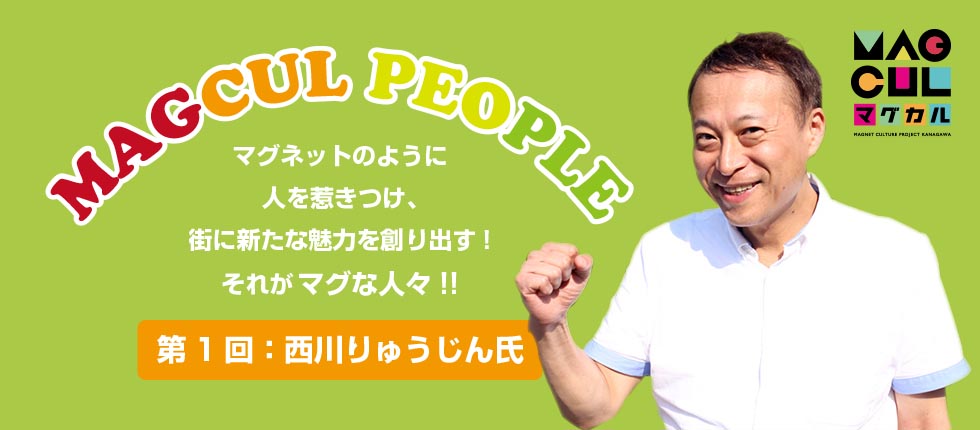
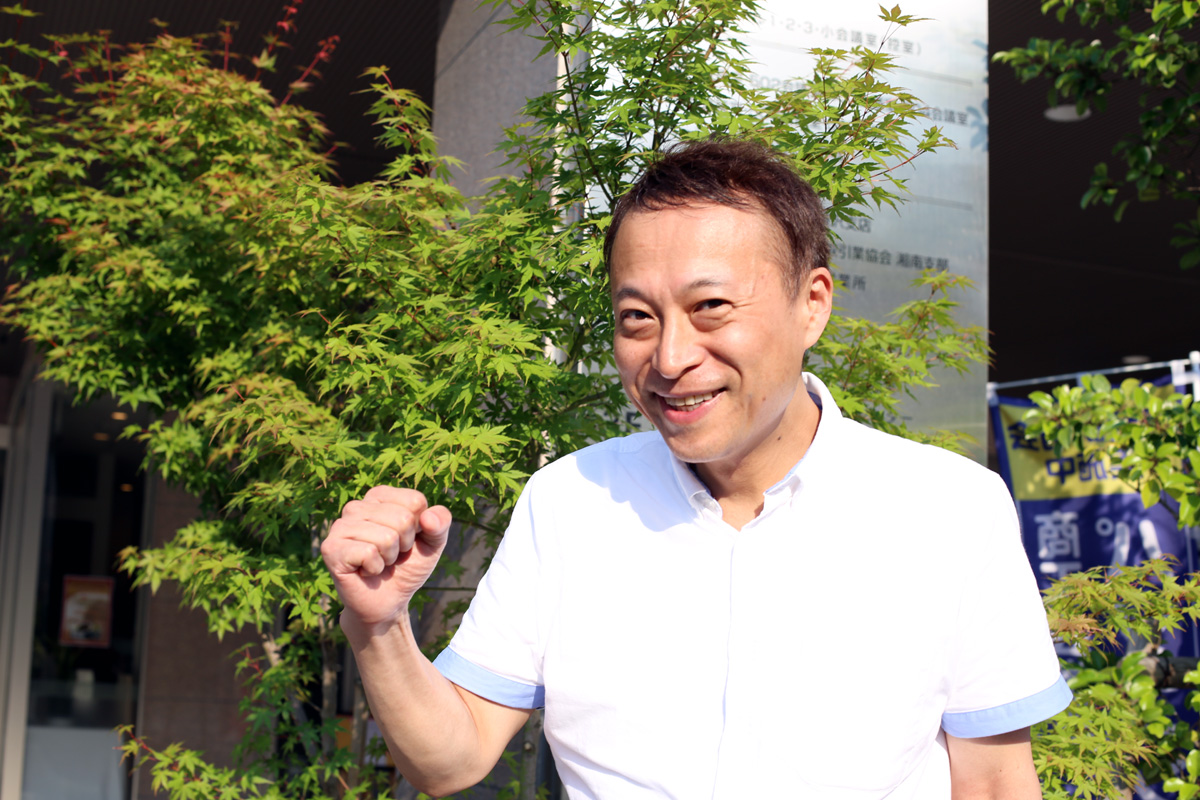
Ryujin Nishikawa
"Magcal" Initiatives
-What prompted the start of "Magcal"?
"Magcal" was started by a group of people who agreed with Governor Yuji Kuroiwa's idea of "making Kanagawa Prefecture the Broadway of the Orient!"
This initiative involves the prefecture and municipalities, centered around Yokohama, working together to use the power of culture as a magnet to enhance the appeal and value of Kanagawa Prefecture and promote it both domestically and internationally.
Since the port of Yokohama was opened in 1859 at the end of the Edo period, various cultures have blossomed in Kanagawa Prefecture and Yokohama City, fusing the East and the West. For example, in 1870 (Meiji 3), Japan's first full-scale Western-style theater, the Goethe Theater, was established, and in 1875 (Meiji 8), the first performance of Hamlet in Japan was held there. Shoyo Tsubouchi, a pioneer of Shakespeare theater in Japan, also wrote that it was the first time he had seen a Shakespeare performance.
After that, many theaters came to line Yokohama. With flags bearing the names of popular actors lining the streets and the cries of theatergoers ringing out, the area was said to have enjoyed a tremendous boom. However, most of the theaters were destroyed in the Great Kanto Earthquake of 1923 (Taisho 12) and the subsequent damage caused by the Second World War.
As a result, after the war, as the term "Kanagawa citizens" suggests, it is undeniable that Kanagawa Prefecture became subordinate to Tokyo not only economically but also culturally.
However, in recent years, efforts by theater and theater-related people from Japan and abroad have flourished, and Kanagawa Prefecture is regaining its position as a cultural center. "Magcul" was launched to connect and disseminate various cultural and artistic activities in the prefecture.
To that end, in 2012 we launched "Magcal.net," a portal site about all kinds of culture and arts in Kanagawa Prefecture, and have begun disseminating information in real time.
-What specific activities have you been involved in at Magcal?
Called the "Magcal Festival," the event will take place at public facilities such as KAAT (Kanagawa Arts Theatre) and the three historic towers of Yokohama: King (Prefectural Office Main Building), Queen (Yokohama Customs), and Jack (Port Opening Memorial Hall). The "Magcal Theater" will also be set up to discover and nurture the next generation of artists.
In addition, the school has opened the "Magcal Performing Arts Academy" with Kensuke Yokouchi, a playwright and director who was born in Kanagawa Prefecture and is one of Japan's leading playwrights and directors, as its principal, and is also involved in activities such as hosting the musical "HEADS UP!", which has won numerous awards and is one of Japan's top musical productions.
On the other hand, the program also highlights cultural arts from all over the world, past and present, such as introducing "Re-Classics," an attempt to preserve traditional classics such as Bunraku puppet theater from all over the prefecture.
-The final match of the 2019 Rugby World Cup will be held in Yokohama, and the sailing events of the 2020 Tokyo Olympic and Paralympic Games will be held at Enoshima in Fujisawa. How will the two events be linked and coordinated as part of Magcul?
These two international sporting events will attract not only athletes but also tourists from all over the world to Kanagawa Prefecture.
While the only time that a sporting event remains on the record is that day and that time, what remains in the memories of many people is undoubtedly the culture and arts of Kanagawa Prefecture, including our food culture and everyday lifestyle. In other words, we are creating a "legacy of memory." Just as people who visit New York, Paris, and Vienna enjoy musicals, plays, and concerts, we would like people to not only "watch" sports in Kanagawa Prefecture, but also to enjoy "theater performances" that will become lifelong memories!
-What do you think is the keyword for "Magcal"?
It's not the flu, but the "epidemic emotion." The word "emotion" is written as "emotion" and "movement." When you feel something, you move. Whether it's a musical, a stage performance, a song, or art, the passion of the performers and the people behind the scenes is conveyed to you and you are moved, and then you want to tell your friends and family about that emotion, and you want to try it yourself. I think that the virus of emotion is transmitted from person to person in this way, and that's what makes Kanagawa Prefecture more interesting.
Culture has the power to move us, after all. Joy, anger, sorrow, and happiness touch our heartstrings and stir our souls. We currently live in an age where we are saturated with materialistic emotions and are overflowing with material things. But everyone has times when their hearts are not satisfied. Watching a play or a movie, or listening to music can heal us, or dancing with someone can make our hearts dance. This becomes a magnet that creates our own magnetic field, and when that power gathers, it will become Kanagawa Prefecture's magnet culture.
Activities in Fujisawa City, which will be the venue for the sailing events at the 2020 Tokyo Olympic and Paralympic Games
-Ryujin, you are creating a new culture together with the people of Fujisawa city.
As an advisor for the city's urban development, I have held the "Fujisawa Station Shopping District Genki Summit" many times with the people of the shopping district around Fujisawa Station. From there, a vertical, horizontal and diagonal network of interesting people of all ages and genders in Fujisawa has been formed, and various initiatives have been launched.
For example, the Fujisawa Minamiguchi Ramble Shopping Association had 200 member stores during the period of high economic growth, but after the lost 20 years following the collapse of the bubble economy, the number has plummeted to just 45. The electricity bills for the street lights in the shopping district are also covered by membership fees, but an increasing number of stores decided not to join the association because they saw no benefit in paying the fees, and eventually the area ran out of funds to even replace burned-out light bulbs, leaving it completely dark.
This would be dangerous from a crime perspective and would further reduce customer numbers, so Chairman Makoto Oguri and other young leaders came up with the idea of holding events to attract customers. However, there was no space on the street to hold events, and holding events would not directly lead to increased customer numbers for each store.
So, after discussing it with everyone, we decided to revive the "guitarist" who was popular in Fujisawa after the war. Even if there is no event venue, the guitarist can visit each store and make customers happy, livening up the store.
I immediately consulted with my friend, Paris Nakayama, the representative of the "Heisei Nagashi Association," and had two traveling artists, a man and a woman, visit the member and candidate stores of the shopping district association, and they were very well received, with people singing along to everything from oldies to J-POP. They were also featured prominently in newspapers and on television, and in 2017 they are even more powerful than ever, and are excited to become an old and new Fujisawa specialty.
-I hear there is a movement to bring back the excitement of the 1964 Tokyo Olympics.
Until the time of the previous Tokyo Olympics, the area around Fujisawa Station was a bustling entertainment district lined with traditional Japanese restaurants, a stylish town where geisha and maiko strolled the streets and the sound of shamisen could be heard.
Around that time, the Fujisawa Yanagidori Association at the north exit released records by Nippon Columbia of "Fujisawa Yanagi Kouta" sung by Shimakura Chiyoko and "Fujisawa Bayashi," a duet by Murata Hideo and Satsuki Midori.
The current young members of the Yanagidori Mutsumi Association, including the chairman of the association, Numakami Haruie, said, "It would be a waste to let such treasures lie dormant!" and took action, gathering photos from the past with the help of senior members of the shopping district and city hall staff. Then, with permission from Columbia, I created a video and uploaded it to an internet video site. Starting this summer, the old dance to the two songs is scheduled to be revived at the town festival.
-Young people in Fujisawa are very energetic.
There are a lot of really interesting people here, including the nationally famous "Prince of the Sea" who is Princess Mako's fiance. The Fujisawa Meiten Building in front of Fujisawa Station has revived the only beer garden in Shonan for the first time in 30 years, and it is bustling every summer. When I came up with the idea, Yoshida Nobuyoshi, who runs the most popular meat shop in Shonan, quickly put it into shape.
After visiting the Cannes Film Festival, a young woman named Sachiko Takenaka wondered, "Why doesn't Fujisawa have a film festival?" and started the Fujisawa International Film Festival. She even went so far as to build a small movie theater called "Cinekoya" because she thought it was strange that there wasn't a movie theater in Fujisawa.
The town is like a human zoo, with many energetic young people active in the area, including Kobayashi Gosuke, organizer of the "Choi-nomi Festival" which has spread from the Tokyo metropolitan area to the Kansai region; Yoshikawa Yuji, also known as Yoshi, who organizes the "Fujisawa Konamon Festival" where people can grow Fujisawa-grown wheat from scratch and enjoy a variety of foods made with it; Suzuki Kazuya, who has brought together disparate shops scattered throughout a residential area into one shopping district; and Takahashi Mutsumi, who revived fish sauce.
-When you think of Fujisawa, you think of Enoshima, but the Fujisawa-juku Yugyo-no-Bon festival is also gaining attention nationwide.
Fujisawa has developed as the center of Shonan since the Meiji period, but during the Edo period it flourished as a post town on the Tokaido road, Fujisawa-juku. However, originally it was established as a temple town for the head temple of the Jishu sect, "Yugyo-ji Temple" (Seijo-ji Temple), founded by Ippen Shonin, known as the originator of Bon Odori, during the Kamakura period.
The Fujisawajuku Yugyo no Bon Festival, held every summer, brings together not only the local Yugyo dance, but also Japan's most representative bon dances, including the Gujo Odori dance of Gujo Hachiman in Gifu, a nationally designated Important Intangible Cultural Property, and the Nishimonai Bon Odori dance of Ugo Town in Akita. In a sense, the entire town becomes a showroom for Japanese bon dance.
Bon Odori has become popular among young people and inbound tourists in recent years, and Fujisawa has become a mecca for such "Bon Odora."
However, many people in nearby Odawara and Hiratsuka, which were also post towns on the Tokaido road, are unfamiliar with the "Yugyo no Bon." Conversely, many people in Fujisawa are unaware of Odawara's "Hojo Godai Festival," and even if they do, many have never been to it.
In other words, the present day is closer in time than the Edo period, but culturally more distant. Don't feel like you've been there or that you know about it, but go first. Then invite your friends and acquaintances to join you. Such exchanges through festivals rooted in the local community will surely become a "cultural broadway" that connects people and towns through culture and creates excitement in Kanagawa Prefecture with "Magcul".
Let's all work together to make Kanagawa Prefecture "amazingly arty" with "Magcul"!
